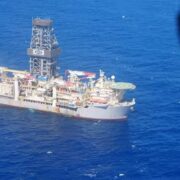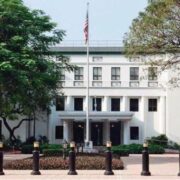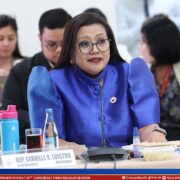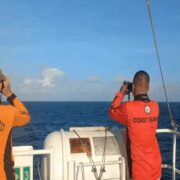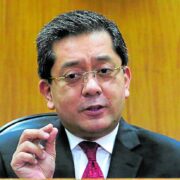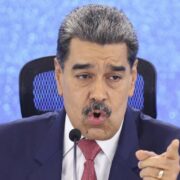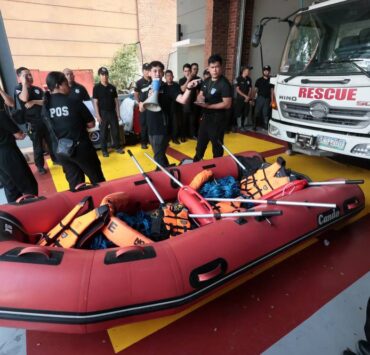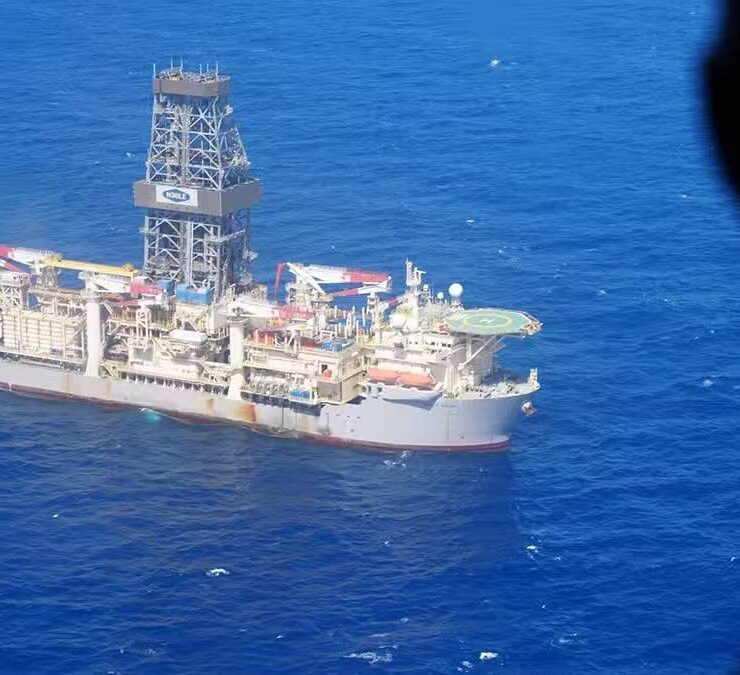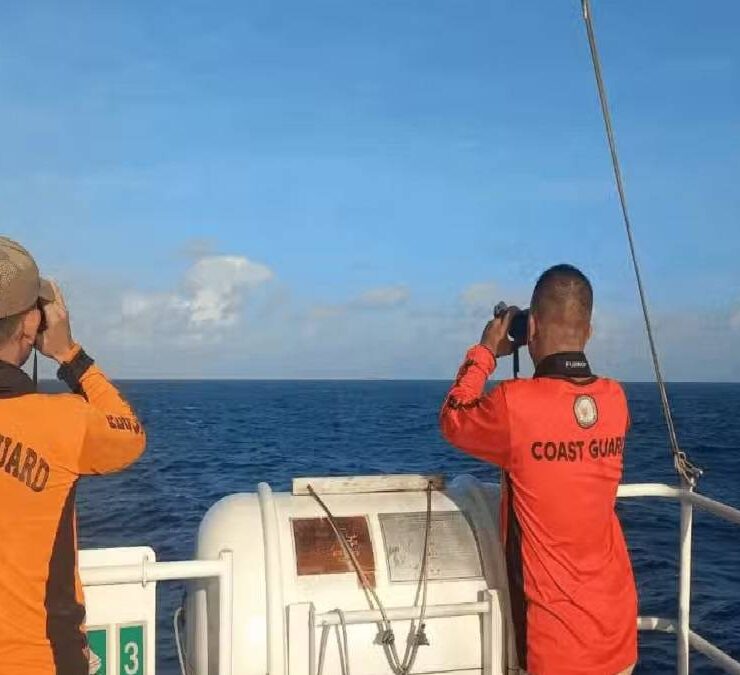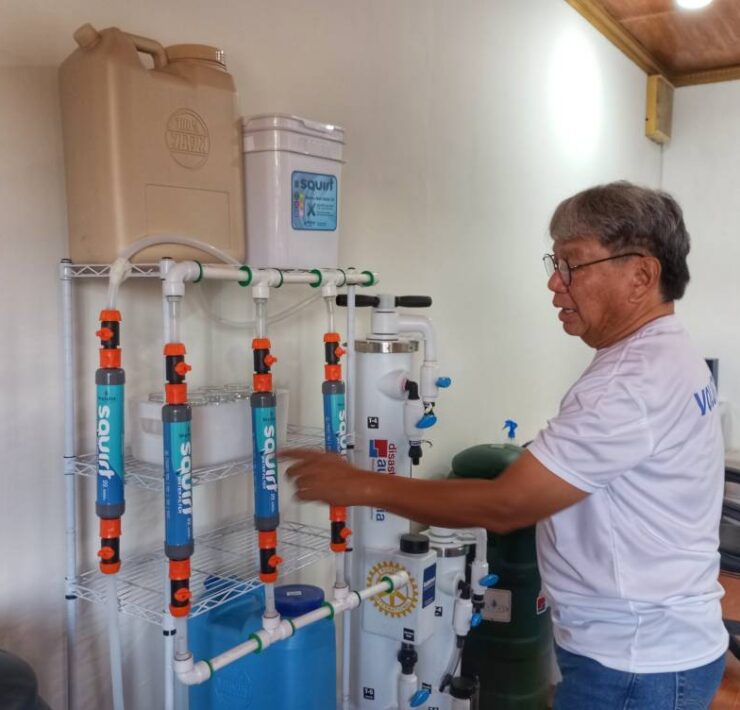Bersamin on ICC arrest of Bato: Not so fast
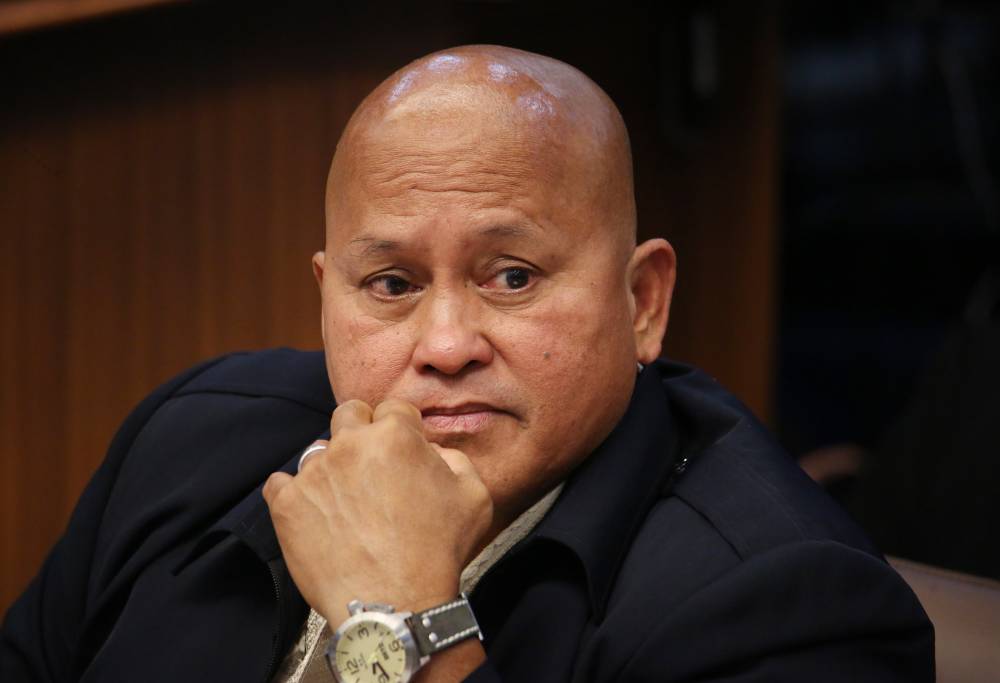
Ombudsman Jesus Crispin Remulla on Saturday said the International Criminal Court (ICC) had allegedly ordered the arrest of Sen. Ronald “Bato” dela Rosa, a potential coaccused of ex-President Rodrigo Duterte who is charged with crimes against humanity.
Executive Secretary Lucas Bersamin, however, indicated that the former Philippine National Police chief won’t be joining Duterte in an ICC detention facility in The Hague, the Netherlands, anytime soon.
“I have it on good authority—because this is a public interest (radio) program—that the ICC has issued a warrant against Sen. Bato dela Rosa,” Remulla said in an interview with the dzRH radio show “Executive Session.”
Pressed on whether the information was confirmed, Remulla said, “I think so. I would say so.”
“I have it on good authority,” he reiterated.
Asked to comment on Remulla’s disclosure, Bersamin said that the ICC might have issued an arrest warrant against Dela Rosa, but it has yet to transmit the order through the International Criminal Police Organization (Interpol).
It was upon an Interpol request that Philippine authorities arrested and surrendered Duterte to the ICC in March to face charges of crimes against humanity for the thousands killed in his drug war.
Asked whether the same process would be applied to the senator, Bersamin said, “Not anymore.”
He said the Supreme Court recently approved new rules on extradition “requiring a prior resort to a court before the person subject of extradition may be brought out of the country.”
Remulla also said that the new rules would have to be applied in the case of Dela Rosa.
According to Remulla, the Department of Justice (DOJ), through the Office of the Chief State Counsel, will have to file a request for Dela Rosa’s extradition with an extradition court. The Solicitor General will represent the government in the proceedings, he said.
Different tune earlier
In January, Bersamin said the Philippine government would act “favorably or positively” to a request by the ICC to take custody of any person linked to the court’s investigation of Duterte’s alleged crimes against humanity.
He said the ICC no longer had jurisdiction over the Philippines after Manila withdrew from the Rome Statute that established the tribunal in March 2019.
“But that does not necessarily mean that the order of the ICC, coursed through the Interpol, is to be ignored,” he said.
Senate President Vicente “Tito” Sotto III said that the arrest of any senator within Senate premises would not be allowed, but arrests outside were “no longer our concern.”
“I am not [privy] to the warrant being issued,” he told reporters. “But as I have said in the past and in consultation with some members of the Senate, to preserve the dignity of the Senate, and as a matter of institutional courtesy, we cannot allow any senator to be arrested in the Senate premises.”
Legal immunities
The 1987 Constitution provides certain legal immunities to members of the Philippine Congress, including privilege from arrest for any offense punishable by imprisonment of not more than six years while Congress is in session.
Human rights group Karapatan on Saturday warned the Senate leadership that it would be complicit in “harboring a criminal” if it shields Dela Rosa from arrest.
“He must face justice—alongside Duterte and all officials who ordered, enabled, and covered up these atrocities,” Karapatan secretary general Cristina Palabay said in a statement.
“To Senator Sotto: there is no dignity in protecting those responsible for widespread killings, torture, and the criminalization of the poor,” Palabay said.
Neither the DOJ nor the Department of the Interior and Local Government (DILG), which has supervision over the PNP, had confirmed that the ICC had issued the arrest warrant against Dela Rosa.
The Philippine Center on Transnational Crime, which coordinates with Interpol on behalf of the government, has not received any “red notice” against Dela Rosa, according to Interior Secretary Jonvic Remulla, the Ombudsman’s younger brother.
In Cebu for aid drive
A red notice is a request circulated by Interpol across the globe to locate and arrest a person pending extradition or other legal proceedings.
Dela Rosa has not issued any comment as of this writing.
The senator on Thursday and Friday distributed aid in several areas in Cebu devastated by Typhoon “Tino” (international name: Kalmaegi).
On his Facebook page on Saturday, he referred to a statement by his lawyer, Israelito Torreon, who said they had no “independent confirmation” of Remulla’s report.
“If proven true, we trust that the Philippine government will act in accordance with the rule of law, and that any such action shall pass through the proper local judicial confirmation process consistent with our Constitution, due process, and the sovereign rights of the Republic of the Philippines,” Torreon said.
The spokesperson for the ICC has yet to confirm the issuance of the arrest warrant.
Arrest ‘is certain’
The ICC Office of the Prosecutor (OTP), which could have likely applied for the warrant, refused to comment “on ongoing investigations.”
“[Confidentiality] is essential to protect the integrity of investigations and to ensure the safety and security of victims, witnesses, and all those with whom the office interacts,” the OTP said in an email to the Inquirer.
Kristina Conti, a lawyer for the drug war victims, said that an arrest warrant against Dela Rosa “is certain from what victims know and what the prosecution has presented.”
“It is up to the Marcos administration to enforce his arrest and surrender to the ICC,” said Conti.
Dela Rosa, who had served as Davao City police chief under Duterte, was repeatedly cited in the prosecution’s urgent application for the latter’s arrest warrant as a “longtime ally” who developed “tokhang,” which instructed the police to knock on the doors of suspected drug users and pushers to ask them to surrender before they later ended up dead.
The OTP, in its “pre-confirmation brief,” also attributed to Dela Rosa a promise—made weeks before Duterte was to assume the presidency in July 2016—to immediately scale up the Tokhang model. This promise came with a threat: “If someone fights back, they’ll die. If nobody fights back, we’ll make them fight back.”
It also pointed out that on his first day as PNP chief, he issued the Command Memorandum Circular No. 16-2016, which launched “Project Double Barrel,” a national replication of Duterte’s anti-illegal drug policy in Davao City.
Should there be an arrest warrant, Conti said that the ICC Pre-Trial Chamber may request for his “arrest and surrender, and not extradition” to the Philippine government or the country where he may be found, regardless of whether it is a state party to the Rome Statute or not.
Form of cooperation
“Surrender is a form of cooperation with the ICC, which is an international court, by member—and even non-member states,” she said in a Facebook post.
The Rome Statute says that the ICC may simply send a “request for the arrest and surrender of a person … to any State on the territory of which that person may be found and shall request the cooperation of that State in the arrest and surrender of such a person.” The state party should then comply in line with its own national laws and the provisions of the Rome Statute.
In contrast, the extradition process of the Supreme Court, which takes effect on Monday, would be tedious as it involves requests made by a state to another state, Conti said, noting that the ICC is not a state. —WITH REPORTS FROM GABRYELLE DUMALAG, DEMPSEY REYES, JHUNNEX NAPALLACAN AND INQUIRER RESEARCH



